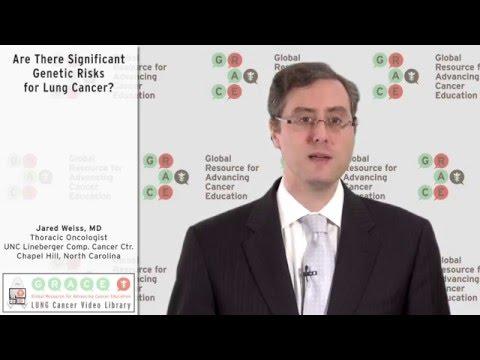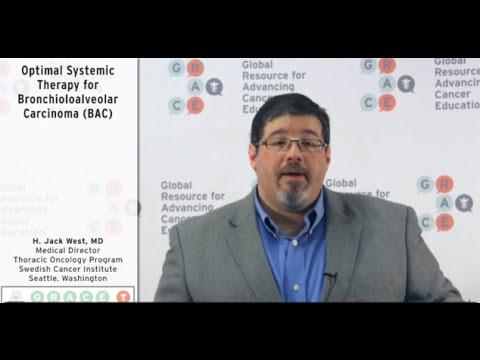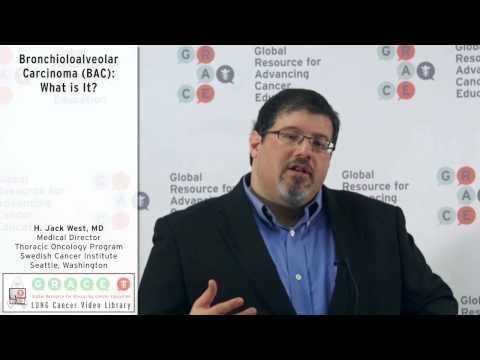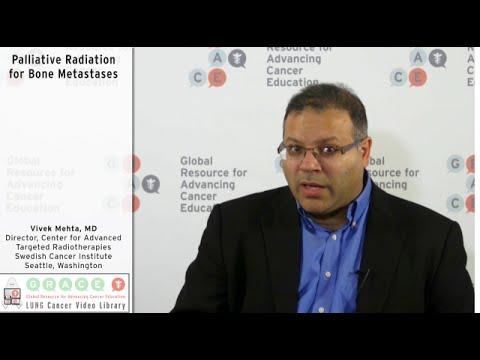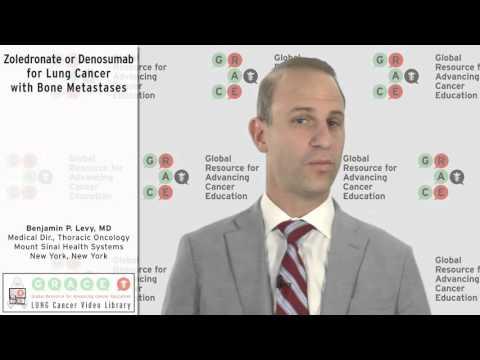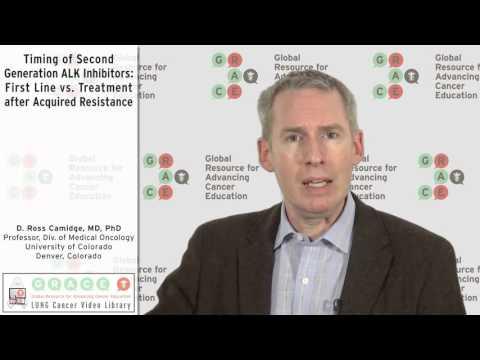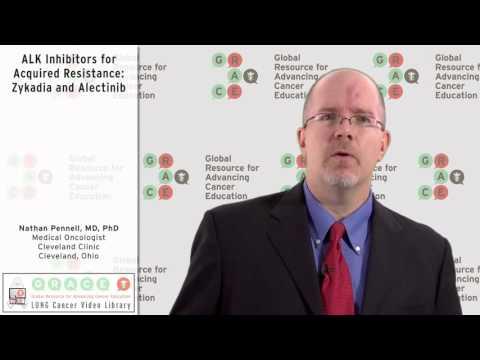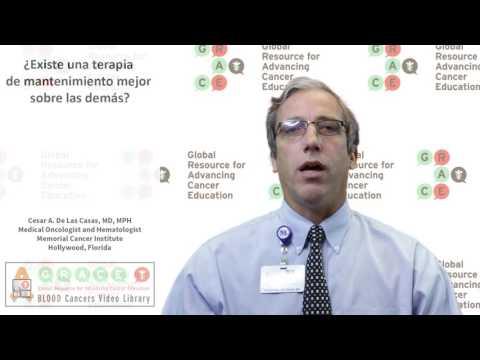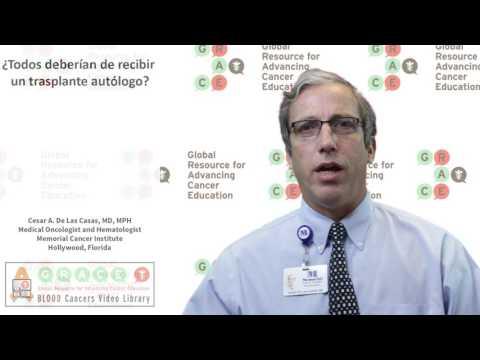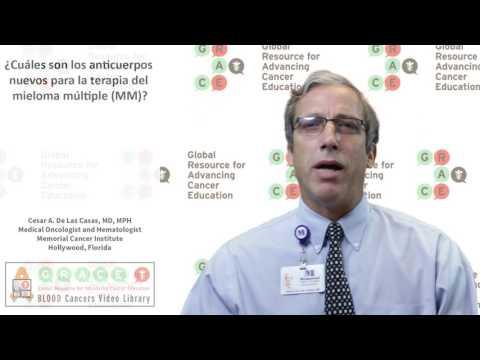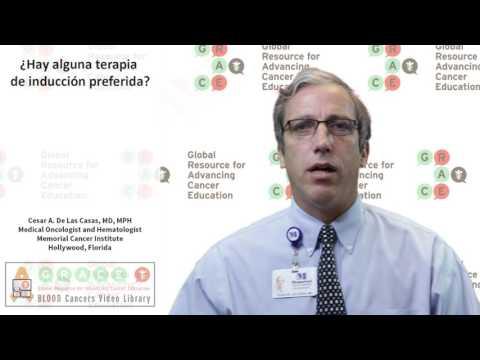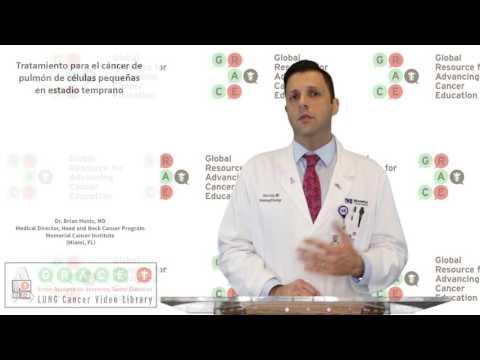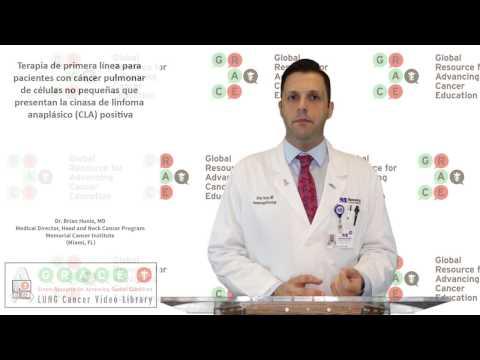Dr. Jared Weiss, UNC Lineberger Comprehensive Cancer Center, discusses the genetic risk (or lack thereof) for lung cancer.
Video Library
Search the Video Library
Video Language
Filter by Cancer Type:
Displaying Results 1 - 15 of 34
Bronchioloalveolar carcinoma (BAC) is an unusual subtype of lung cancer; medical oncologist Dr. Jack West reviews the evidence on the best systemic therapy to treat advanced, multifocal BAC.
Bronchioloalveolar carcinoma (BAC), also known as adenocarcinoma in situ, is an unusual subtype of lung cancer with its own appearance under a microscope and on imaging. Dr. Jack West introduces some of the basics of the unique features of BAC. Download PDF Transcript Transcript One of the unusual
Unfortunately, there is as much misinformation as good information about the unusual subtype of lung cancer known as bronchioloalveolar carcinoma (BAC) or adenocarcinoma in situ. Dr. Jack West reviews the top 5 myths. Download PDF Transcript Transcript One of the unusual subtypes of lung cancer is
Radiation therapy can be very helpful in treating painful bone metastases or those at risk for causing a fracture due to compromise of bone strength. Dr. Vivek Mehta reviews the basics of this approach. Please feel free to offer comments and raise questions in our Discussion Forums. Transcript
Dr. David Harpole, Duke University Medical Center, describes how he assists patients with the surgical decision-making process.
Transcript One of the important points about patients with advanced lung cancer is that 30-40% of patients will develop bone metastases. I think it’s important to recognize this is not bone cancer, this is lung cancer that’s moved to the bone, and in 30-40% of patients at some point who have
Dr. Ross Camidge, University of Colorado, addresses the question of whether to use a second generation ALK inhibitor as first line therapy or only after acquired resistance to crizotinib.
Dr. Nathan Pennell, Cleveland Clinic, discusses acquired resistance to Xalkori in ALK-positive patients, and second generation inhibitors designed to overcome that resistance, such as Zykadia and alectinib.
GRACE sat down with Cesar A. De Las Casas, MD, MPH, to discuss information regarding if there is a best maintenance therapy (¿Existe una terapia de mantenimiento mejor sobre las demás?). Stay tuned for more on our continuing video series with our Spanish speaking faculty on updates in blood cancer
GRACE sat down with Cesar A. De Las Casas, MD, MPH, to discuss information regarding whether all patients should receive an autologous transplant (¿Todos deberían de recibir un trasplante autólogo?). Stay tuned for more on our continuing video series with our Spanish speaking faculty on updates in
GRACE sat down with Cesar A. De Las Casas, MD, MPH, to discuss information regarding the new antibodies for multiple myeloma (MM) therapy (¿Cuáles son los anticuerpos nuevos para la terapia del mieloma múltiple (MM)?). Stay tuned for more on our continuing video series with our Spanish speaking
GRACE sat down with Cesar A. De Las Casas, MD, MPH, to discuss information regarding if there a preferred induction therapy (¿¿Hay alguna terapia de inducción preferida?). Stay tuned for more on our continuing video series with our Spanish speaking faculty on updates in blood cancer treatments, and
For our 14th video in the GRACE Spanish Lung Cancer Library, Brian Hunis, MD joined GRACE to discuss treating early stage small cell lung cancer.
For our 17th video in the GRACE Spanish Lung Cancer Library, Brian Hunis, MD joined GRACE to discuss first line therapy for NSCLC patients that have anaplastic lymphoma kinase (ALK) positive.

